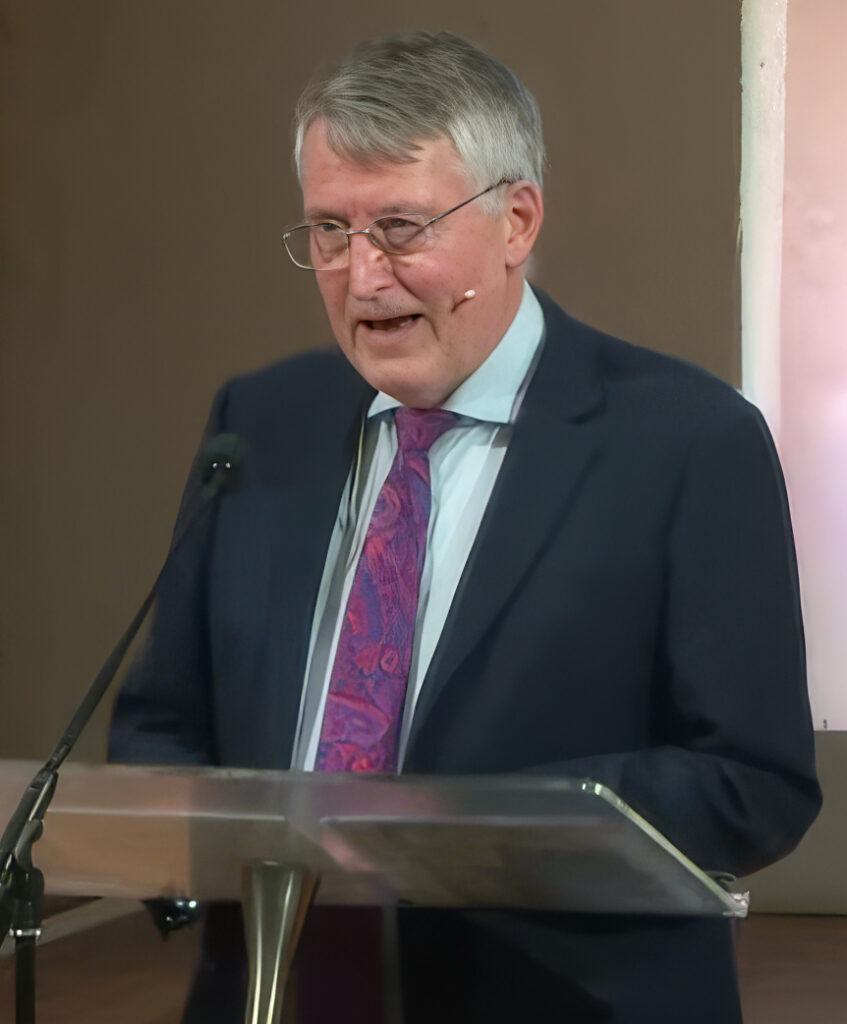It’s hard to ignore the prevalence of ‘Artificial Intelligence’ (AI) at the moment! It seems to be seeping into many areas of our work, social and personal lives.
So it was timely that this year’s John Stott London Lecture at All Souls, Langham Place saw Professor John Wyatt outlining the opportunities and challenges of AI, especially from a Christian perspective.

You can watch the lecture, read the manuscript, or check out a summary of the key points below.
Context and Central Themes:
• Rise of AI Companions: The lecture discusses the increasing prevalence of AI-simulated relationships, used for therapy, care, education, amusement, and even romance. These technologies respond to a growing sense of loneliness and relational deficiency in society.
• Cultural Reflection: Drawing on TS Eliot’s observations about the loss of wisdom in the face of technological advancements, Wyatt emphasises the need for Christians to balance engagement with the world and faithfulness to biblical teachings.
Challenges of AI:
• Simulation vs. Reality: Wyatt explores how AI companions, such as chatbots and avatars, simulate human relationships but ultimately lack genuine personhood. He references philosophical concepts like Jean Baudrillard’s “hyperreality” and Martin Buber’s “I–Thou” to critique the superficiality of these connections.

• Ethical Concerns: The lecture raises concerns about the addictive nature of AI companions, their potential to manipulate users, and the risk of substituting meaningful human interactions with simulated ones.
Theological Reflections:
• Christian Understanding of Personhood: Wyatt emphasises the theological basis of human relationships, rooted in the Trinitarian nature of God and the incarnational reality of Christ. True personhood involves relationality, self-giving love, and encounter, which AI cannot authentically replicate.
• Dangers of Idolatry: The lecture critiques AI as a potential idol that could distort human relationships and values. Wyatt calls for discernment in the face of these challenges.
Call to Action:
• Education and Awareness: Wyatt highlights the need to educate people, particularly younger generations, about the risks of AI technology and its impact on human relationships.
• Redemption of AI: He advocates for harnessing AI’s potential for therapeutic purposes while avoiding its misuse as a substitute for human relationships.
• Biblical Foundations: Wyatt urges Christians to reemphasise teachings on personhood, community, and friendship, viewing them as antidotes to the relational deficiencies AI exacerbates.
Conclusion:
The lecture concludes by reaffirming the relevance of Christian doctrines (e.g., the Trinity, Incarnation, and Communion of Saints) as a foundation for navigating the challenges and opportunities posed by AI in the 21st century.
Wyatt gives both a critique of AI’s impact on human relationality and a hopeful vision for redeeming technology to serve human flourishing within a theological framework.
